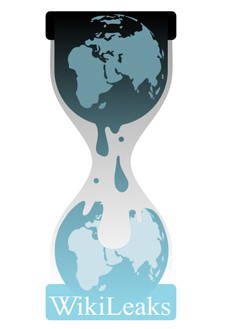2011-09-04 WikiLeaks Notes: Latest News on #Cablegate Releases & #WikiLeaks

This is a "WikiLeaks News Update", a daily news update of stories that are obviously related to WikiLeaks and also freedom of information, transparency, cybersecurity, and freedom of expression. All the times are GMT.
09:30 PM U.S. Embassy cables published by WikiLeaks regarding pharmaceutical drugs and the U.S. Government’s efforts to raise medicine prices in developing countries are the subject of a piece authored by James Love, where he also comments on media reaction to the publication of Cablegate2 by WikiLeaks:
While I join those who are greatly saddened by this lapse in security, and aware of the consequences, I am also shocked at the bitter attacks on WikiLeaks, which seem unbalanced, under the circumstances.
After reading these cables, it is difficult to stomach the defenses of US secrecy. Forcing developing countries to raise the price of drugs has predictable and well known consequences -- it kills people, and increases suffering. Many people could care less -- including reporters and editors of newspapers. How much of this ends up in the Washington Post, the New York Times or the Guardian these days? But others who do care now have more access to information, and more credibility in their criticisms of government policy, because of the disclosures of the cables.
09:00 PM Cables show that former Blackwater employees continued to work in Iraq after the firm was banned from the country following a shooting in 2007, during which guards hired by the company killed 17 Iraqi citizens.
08:20 PM A detailed analysis of the technical aspects surrounding the disclosure of the full Cablegate archive concludes:
"The clear cryptographic answer is: Guardian is to blame. When we use encryption, it is entirely expected and normal for the encrypted text to be visible to the public. If the encrypted text isn’t visible to the public, it can’t possibly be transmitted. (…) the entire point of cryptography is that we don’t divulge the encryption key. So WikiLeaks was in the right to make the encrypted file public (however that happened), assuming that the passphrase would be kept private. The Guardian was in the wrong to make the passphrase public, assuming that the encrypted file would be kept private. By definition, the encrypted file was public because it was available from a public server for at least a few hours."
08:10 PM Following WikiLeaks’ revelations, the Indian Government is being accused by the Opposition of "succumbing to American pressures" and "completely failing" to grab the opportunity to extradite David Headley, a member of Islamist terrorist organization Lashkar-e-Taiba.
08:00 PM Cables confirm Nigeria’s House of Representatives agreed to represent Shell’s interest on the petroleum bill.
07:40 PM Al Jazeera reports on a diplomatic cable detailing Israel’s measures to counter peaceful protests in the West Bank.
"In the cable, the US ambassador to Israel noted that government officials considered any rally as grounds for use of military force.
In a meeting held between US officials and Avi Mizrachi, head of Israel's central command, the latter warned the Israeli army will be more assertive in how it deals with West Bank demonstrations and will start sending trucks "with 'dirty water' to break up protests, even if they are not violent".
As the US cable pointed out, “dirty water is a reference to the IDF's chemically treated water that duplicates the effects of skunk spray"."
07:20 PM "China is buying gold with the intention of weakening the dollar’s reserve currency status and gold prices will keep going up", suggests a cable from 2009.
07:05 PM "The 2,000-strong private army of a powerful clan suspected of carrying out the Philippines' worst political massacre was better armed than the military and police", according to leaked U.S. cables.
06:30 PM An article in Green Left Weekly WikiLeaks strikes again: New crimes, lies exposed sums up the release of Cablegate2, and contains ", references to a few recent WikiLeaks’ revelations:
"…an August 2007 cable from the US embassy to the UN that warned against attempts by Cuba and other, unnamed, countries, to move a motion in the UN General Assembly to classify violence against women by US forces in Iraq as human rights abuses.
The cable warned that “to advocate a human rights approach to issues of violence against women may be contrary to larger US foreign policy aims in the sphere of human rights law”."
05:00 PM Hezbollah members repeatedly harassed a Lebanese reporter known for his disdain for the Shiite organization. A cable details how Taher Abbas, reporter for London-based newspaper Asharq al-Awsat, was constantly pursued and threatened by the Hezbollah.